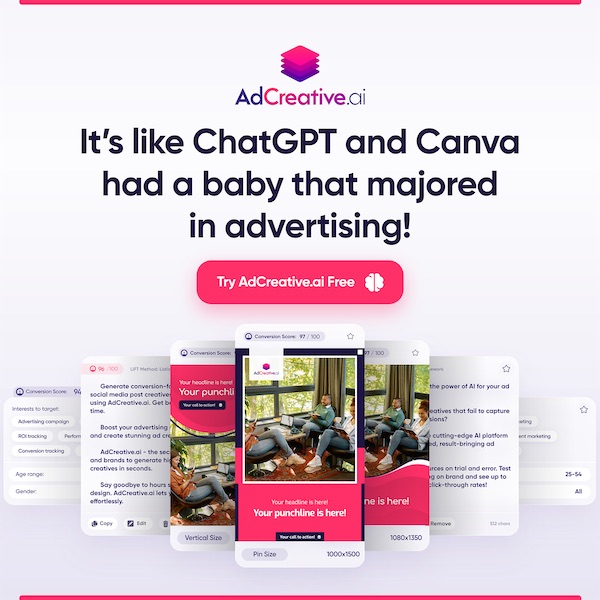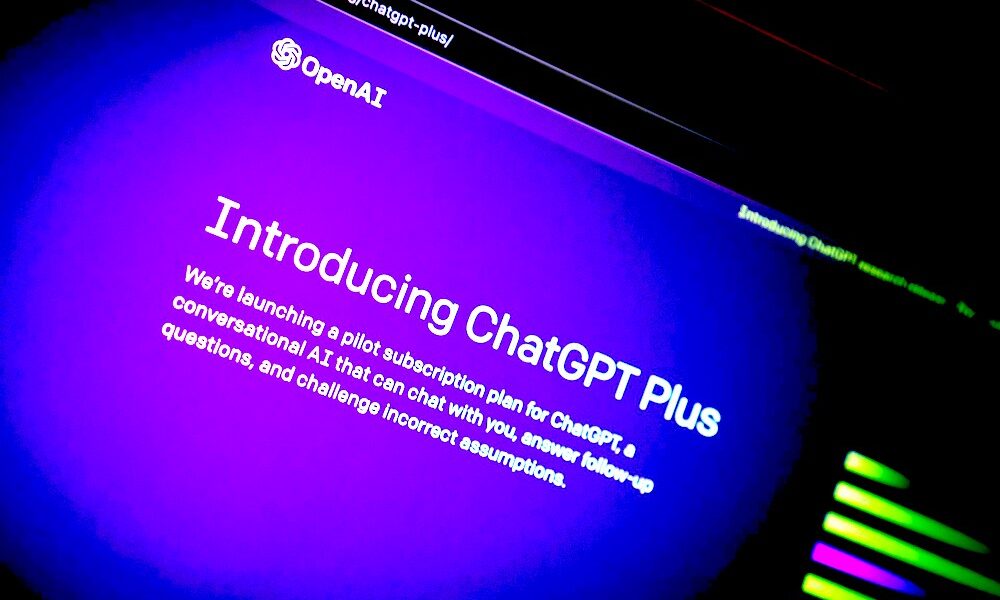In the digital age, Google has become synonymous with the term “search,” dominating over 90% of the global search engine market share. Yet, a recent shift in technology fueled by AI is turning some attention toward the long-time underdog: Microsoft’s Bing.
With the rise of ChatGPT by OpenAI and its partnership with Microsoft, Bing is enjoying a renaissance that few could have predicted.
Microsoft Bing: the Comeback Kid?
For years, Bing has played second fiddle to Google but has dutifully stayed in the game.
Microsoft has the deep pockets and global market presence to do this.
In most large markets there are usually counterbalances to help keep things in check, think McDonald’s/Burger King, Coke/Pepsi as examples. In a similar way, there’s Google/Bing.
While Google holds an overwhelming share of the search engine market, Microsoft’s Bing quietly sits in the background with around a 3-4% global market share as of 2024.
While this market share may sound modest and not worth the bother, in real numbers, that global 3 – 4% market share translates to hundreds of millions of users!
Bing has always had its devotees, particularly within corporate and government sectors, where Windows devices and preinstalled Bing settings are common.
Bing has also quietly captured a significant U.S. market share, claiming nearly 9-10% of search volume in its home country, with some estimates reaching as high as 20% if we factor in all Microsoft-powered search tools, like those embedded in Windows and Microsoft Office products.
However, Bing’s resurgence isn’t just a product of enterprise loyalty or default settings.
The real game-changer is the rise of AI-powered chat, specifically ChatGPT by OpenAI, which, as of late 2023, adopted Bing as its primary search engine.
This integration has propelled Bing into the spotlight, merging the worlds of AI-driven chat and traditional search.
ChatGPT + Bing: The New Face of Search?
ChatGPT, with its conversational interface and advanced AI capabilities, is redefining what search engines can do.
By embedding Bing as its primary search engine, ChatGPT has elevated Bing’s role in the search ecosystem.
Users of ChatGPT’s Plus and Enterprise tiers now see Bing-powered, real-time web results in response to their queries, blending natural language processing with live search capabilities.
This move could be transformative for Bing’s market share, especially as generative AI becomes more popular.
As ChatGPT’s user base expands, Bing may see a significant uptick in usage from users who might not even realise they’re using Bing.
This opens up new opportunities—and challenges—for companies seeking to ensure visibility within this emerging ecosystem.
Generative AI Optimization (GAIO): The New SEO?
The rise of ChatGPT and AI-assisted search is prompting a shift in digital marketing and optimisation strategies.
As search technology evolves, so does the need for a new optimisation approach, enter Generative AI Optimization, or GAIO.
In contrast to traditional SEO, which focuses on keyword placement and link-building for search engines like Google, GAIO is about making sure that AI-driven platforms can “understand” and accurately represent brand information.
With generative AI tools like ChatGPT and Microsoft Copilot now beginning to serve as AI search engines, GAIO is quickly becoming an essential consideration for businesses looking to maintain online visibility.
Rather than simply feeding algorithms with keywords, GAIO involves creating content that’s tailored for natural language understanding.
This includes ensuring that your brand information is contextually clear and that it aligns well with the types of queries that users might ask in a conversational format.
Bing vs. Google: Why Optimising for Both Matters
For years, many marketers focused almost exclusively on optimising for Google, often leaving Bing by the wayside.
However, with Bing’s expanding role in the AI search ecosystem, it’s no longer wise to ignore Microsoft’s search engine.
After all, Bing has unique search algorithms and ranking factors that differ from Google’s and optimising for Bing offers its own advantages:
Keyword Focus – Bing tends to reward exact-match keywords more directly than Google, which leans on semantic relevance and context. Understanding this difference can help brands show up more reliably on Bing.
Multimedia-Friendly – Bing places a higher emphasis on visual content, such as images and videos, which can give brands an edge when they use rich media in their content strategy.
Local and Social Integration – Bing considers social signals and is also a strong player in local SEO, especially through its partnership with Yelp. Businesses with local relevance, social engagement, and a strong Yelp presence can see greater prominence on Bing.
Linked Content – Bing appears to reward sites that use internal linking effectively, particularly when it enhances user navigation and experience.

Preparing for the AI-Driven Future of Search
The days of simple, keyword-focused SEO are slowly fading, and a new era, shaped by generative AI, is unfolding.
If search becomes more conversational—think of asking an AI, “What’s the best Italian restaurant near me?” or “How do I start investing as a beginner?”—brands need to be ready for how their content and offerings are represented.
Now, in truth, Google’s search engine has already been doing this for a while and will do its best to deliver the best content that answers the question. Most will agree that Google search works really well. Google is also heavily invested in AI with its Gemini model and is not likely to disappear anytime soon!
Here are a few key ways to approach this new era of GAIO and Bing optimisation
Structured Content for AI Interpretation – Use structured data (such as Schema markup) to give search engines and AI tools a clear understanding of your content. This helps AI tools better interpret, categorise, and serve your content in response to specific queries.
In essence, this can help machines better understand the content and how it relates to the overall website.
You can learn more about schema markup here from an article in Search Engine Journal that explains the importance and significance when it comes to the rise of AI in search.
Natural Language Content – Craft content that answers questions in a natural, conversational way. A growing number of people are asking search engines questions rather than entering keywords, and generative AI platforms like ChatGPT amplify this trend.
Contextual Relevance – Generative AI looks for contextual relevance, not just keyword density. By ensuring your content is informative, relevant, and rich in context, you’ll make it more accessible and attractive to both traditional search engines and AI-driven tools.
Keep an Eye on Search Trends – Stay informed about updates to Bing’s algorithms and GAIO best practices. Microsoft frequently updates Bing to reflect new technologies, particularly in AI, which could change optimization strategies rapidly.
One of the bedrocks of SEO ultimately is to provide useful content, period, nothing has changed there.
The key thing is to understand the subtle differences and how the landscape is shifting so you are not caught out!
The Bottom Line: Why Bing and Generative AI Optimisation (GAIO) Matter Now
With Bing’s partnership with ChatGPT, Microsoft has staked a bold claim in the future of search.
While Google remains dominant, Bing’s integration with popular AI tools is finally making it a serious player in the search space that brands can no longer afford to ignore.
Generation X and older millennials have become accustomed to Google searches, however, the younger generations, the generations growing up with TikTok can’t be banked on to follow this trend.
They increasingly search for what they are looking for on TikTok!
As AI-powered search grows in popularity it’s essential to stay ahead of the curve and be prepared.
By optimising for Bing and embracing GAIO, brands can prepare to thrive in a world where traditional search and AI converge.
For marketers and brands, the key takeaway is this: a one-size-fits-all approach to SEO is no longer enough.
Generative AI tools, powered by engines like Bing, are reshaping how people will search for and discover information.
By embracing both traditional SEO and GAIO strategies, brands can ensure that they remain visible—and relevant—in a rapidly evolving digital landscape.
Google isn’t going anywhere soon, but, it’s wise to look at the broader picture and make sure that you are not leaving behind any unpicked fruit in your marketing efforts and are as future-proofed as possible!


